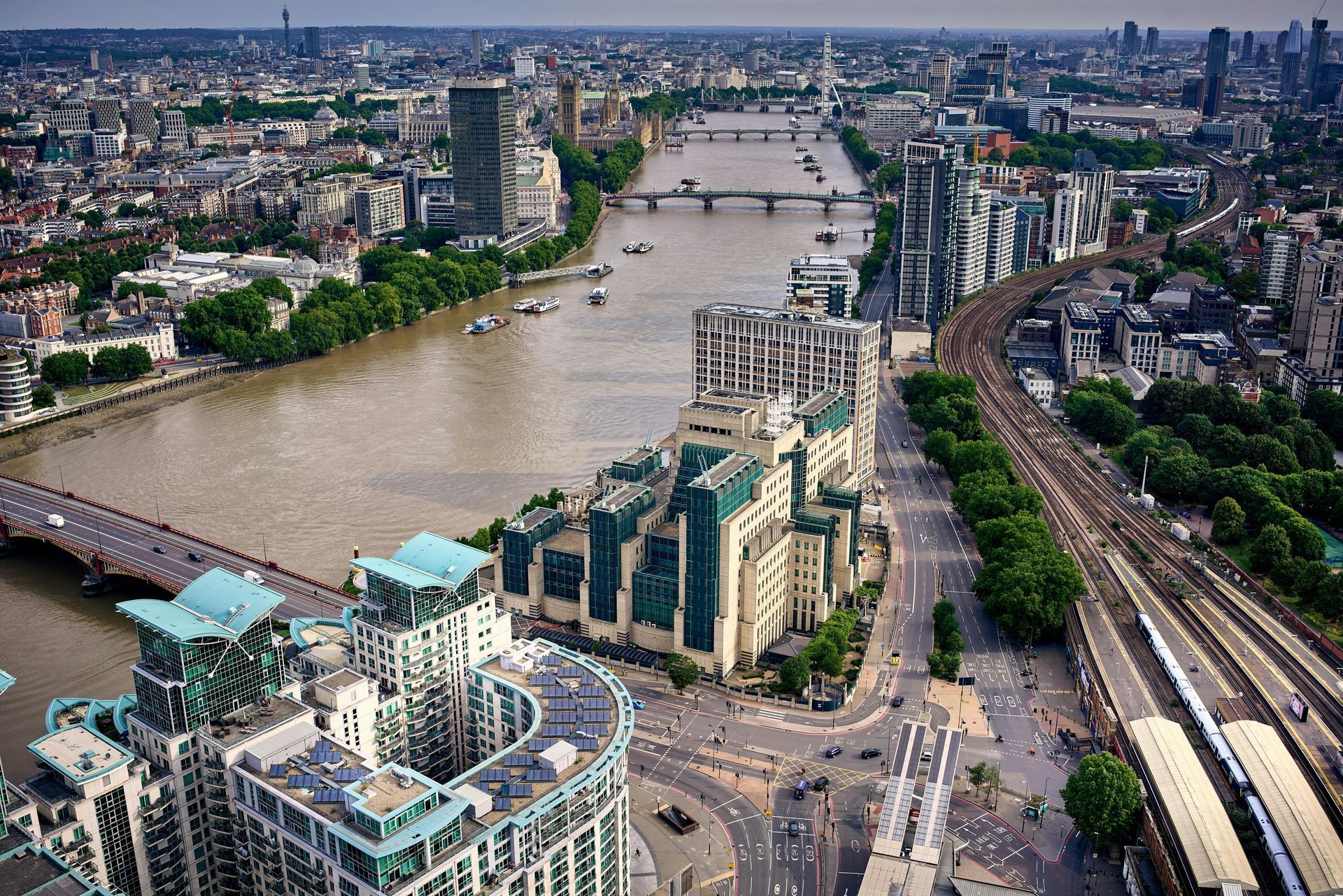Dubai: Where the Grass Really is Greener
Stuart Stobie • January 23, 2025
Dubai: Where the Grass Really Is Greener

In a twist that feels less like migration and more like a plot twist in the global expat sitcom, a growing number of Brits, Americans, and Canadians are packing up their sensible shoes, bidding farewell to drizzle and beige office parks, and heading back to Dubai. Yes, back. Because why slog through tax returns and icy commutes when you can live in a city where the winter "chill" involves swapping shorts for linen trousers?
Contact Us
This so-called "reverse migration trend" has caught the attention of everyone from economists to the guy running the pool bar at your old apartment complex. According to Haider Qureshi of Amity Mortgages, it’s not just nostalgia drawing people back. It’s Dubai’s everything-is-possible-and-tax-free vibe. "The business ecosystem," he says, "is unmatched," and if that phrase sounds like it came directly from a glossy brochure, it’s because Dubai actually delivers on it.
Consider this: Dubai has over 45 Free Trade Zones. That’s basically 45 places where foreign entrepreneurs can live their best, fully tax-exempt lives, complete with 100% ownership of their businesses. Add in the Golden Visa—a shiny ticket to long-term residency—and suddenly, your midlife crisis involves launching a tech startup on the beach instead of buying a motorcycle.
Meanwhile, back in Canada, the UK, and the US, the economic landscape isn’t exactly an expat magnet. Soaring costs of living, taxes that seem to grow like mold, and inflation nibbling at savings have left many wondering if "home" is overrated. Against that backdrop, Dubai looks like a gilded oasis. No income tax. Luxury everywhere. Weather that doesn’t try to kill you (okay, except maybe August). It’s not so much a hard sell as it is the answer to a question you didn’t realise you were asking: “What if I could have it all?”
And have it all they do, especially when it comes to real estate. Returning expats are buying into Dubai’s booming property market, buoyed by attractive mortgage rates and rental yields that make landlords back home weep into their spreadsheets. The city’s infrastructure, shiny and new, makes relocating almost suspiciously easy. Combine that with a social scene that moves at warp speed, and it’s no wonder people are trading their snow shovels for sundowners at the Marina.
Of course, this isn’t just a one-way win for expats. Dubai is reaping the benefits too. Returning professionals bring international expertise, fresh perspectives, and probably a few more people willing to buy overpriced coffee. As they settle back into the city’s multicultural swirl, they enrich the very fabric of a place that thrives on its global DNA.
So here we are, at the crossroads of opportunity and air-conditioned bliss. Dubai, once the great expat experiment, is now the answer to a world that feels increasingly out of balance. For every returning wanderer, there’s a reminder that sometimes the best new chapter is the one you already lived—and this time, it comes with a Golden Visa and a view of the Burj Khalifa.
Are you considering moving to Dubai? Our experienced team provides a comprehensive suite of tax, advisory, wealth management and family office services designed to protect your wealth, navigate complex regulations, and unlock your full potential in Dubai and beyond.

Introduction More wealthy UK residents are exploring life overseas ahead of the 2026/27 tax year. Higher UK taxes, political uncertainty and a desire for a different way of living are all pushing people to look at alternatives. Four destinations stand out for high-net-worth UK individuals as at late 2025: 1. United Arab Emirates (Dubai) 2. Portugal 3. Switzerland 4. Malta Each offers a different blend of tax advantages, residency options and lifestyle. United Arab Emirates (Dubai) - Dubai is now the default choice for many UK entrepreneurs and professionals. Tax For individuals, there is currently no personal income tax on salaries, bonuses or most investment income, and no local capital gains or inheritance tax regime for individuals. There is VAT and a developing corporate tax regime, but personal tax remains far lighter than in the UK. The UK–UAE double tax treaty helps reduce the risk of the same income being taxed twice and needs to be considered alongside UK residence rules. Residency Common routes for UK nationals include: Employer- or company-sponsored residence visas Remote-worker visas for those employed or self-employed abroad Long-term “golden” style visas linked to investment, property or professional status Retirement options for over-55s. (All require private health insurance and periodic renewal.) Lifestyle Dubai offers a high standard of living, excellent connectivity and a large, well-established British community. Housing and schooling are expensive and the lifestyle can encourage overspending, but for many the tax position and opportunity outweigh the costs. Best for: Maximising net income and building or scaling a business in a dynamic, international city. Portugal - Portugal appeals to those who want EU residency, a milder climate and a slower pace of life. Tax The old NHR regime has closed to new applicants and been replaced by a newer incentive framework (often referred to as IFICI) aimed at certain professionals and activities. The UK–Portugal tax treaty reduces double taxation, and Portugal does not operate a classic wealth tax, though property-related charges can apply. (It's signed and ratified but not yet fully in force as of early 2026, which may slightly affect immediate tax planning). Residency Post-Brexit, common routes for UK nationals include: D7 visa – for those with sufficient passive income (pensions, investments, rentals). D8 / Digital Nomad visa – for remote workers with qualifying income from abroad. Work and other residence visas tied to employment or specific skills. These can lead to long-term residence and, ultimately, citizenship if physical presence and integration tests are met. Lifestyle Cost of living is generally below the UK (though higher in central Lisbon and the Algarve), English is widely spoken in cities, and the public and private healthcare systems are well regarded. There are large British and wider international communities. Best for: Those wanting EU residence, good quality of life and a balance of tax and lifestyle advantages. Switzerland - Switzerland attracts UK families who prioritise security, discretion and top-tier services. Tax Tax is set at federal, cantonal and communal level, so overall rates vary widely by canton. Well-chosen cantons can be very competitive for both individuals and companies. Private capital gains are not generally taxed, but there is an annual wealth tax on net assets, with rules depending on location. For suitable non-working individuals, some cantons still offer lump-sum (forfait) taxation, where tax is based on living costs rather than worldwide income, subject to minimum levels and conditions. Residency As non-EU nationals, UK citizens use: B permits – time-limited residence, often linked to work L permits – short-term residence for specific assignments C permits – longer-term settlement after sustained residence and integration Wealthy retirees and non-working individuals may be able to obtain residence based on financial self-sufficiency and, in some cantons, lump-sum taxation. Lifestyle High costs are offset by excellent infrastructure, schools and healthcare (with compulsory private health insurance). International communities are strong in Zurich, Geneva and other cities, though social life can feel more formal than Southern Europe. Best for: Those seeking stability, discretion and first-class public services and education, rather than the lowest day-to-day costs. Malta - Malta is a compact EU state with a very familiar feel for UK nationals: English is an official language and the legal and business environment is comfortable for British professionals. Tax Malta’s tax system and UK–Malta treaty can be particularly attractive where you hold significant foreign-source income. Under the Global Residence Programme, qualifying individuals can pay a favourable flat rate on foreign income remitted to Malta, while foreign capital gains kept offshore are generally not taxed in Malta. There is no separate wealth tax and no classic inheritance tax, though duties may apply to certain Maltese assets. The separate “golden passport” (citizenship by investment) route has been struck down by the EU’s top court, but residence programmes remain available. Residency Options for UK citizens include: Employer-sponsored Single Permits combining work and residence The Global Residence Programme for financially self-sufficient individuals meeting property and minimum tax thresholds Digital-nomad-style visas for remote workers Long-term residence after several years of compliant stay Lifestyle Costs (especially rent and property) are typically lower than in the UK outside the most fashionable areas. English is widely used in government and business, healthcare is solid, and London is only a short flight away. Best for: Those wanting an English-speaking EU base with favourable treatment of foreign-source income and a tight-knit expat community. How to decide & next steps - All four countries can work extremely well for UK high-net-worth individuals, but for different profiles: Choose Dubai if your priority is low personal tax on active income and you are comfortable with a high-energy city. Choose Portugal if EU residency, climate and lifestyle matter as much as tax. Choose Switzerland if stability, education and healthcare are at the top of your list. Choose Malta if you want an English-speaking EU base with flexible options for foreign income. The right answer depends on your overall wealth, income mix, family plans and how tied you remain to the UK. If you would like bespoke, confidential advice on whether remaining UK-resident or relocating to Dubai, Portugal, Switzerland or Malta is the better strategy for your situation, you are welcome to get in touch to explore your options in detail.

